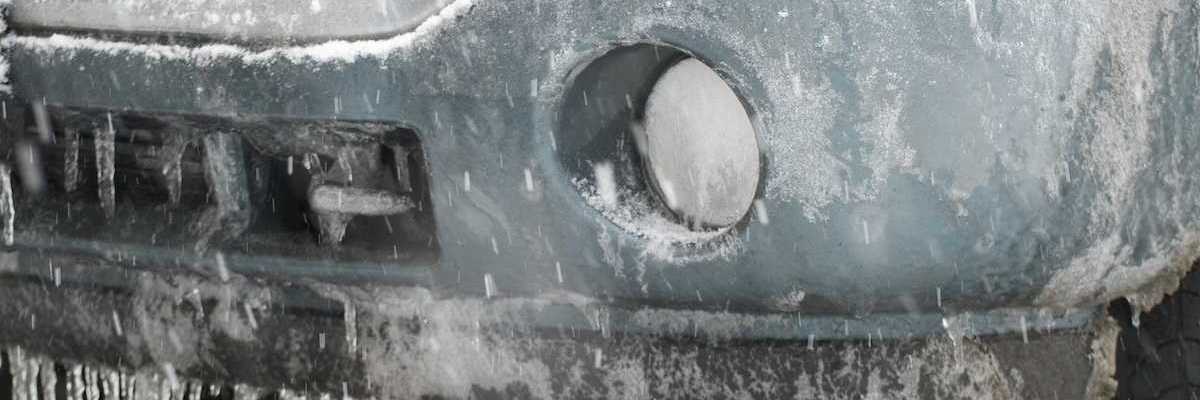wildfire smoke
Wildfires increase risk to pregnant people, but public health response lags
Wildfires pose severe risks to pregnant people, but a new report reveals that public health officials are failing to adequately warn and protect vulnerable populations.
In short:
- Pregnant people are at risk of low birth weight and preterm birth from wildfire exposure, yet public health warnings are insufficient.
- Vulnerable groups, like the unhoused and non-English speakers, lack access to vital safety measures, such as air filters.
- Health providers report a lack of guidance on wildfire-related risks, forcing them to rely on their own research.
Key quote:
“While we know that wildfires are continuing to intensify in the US, and we’re increasingly clear on what damages wildfires represent to maternal and newborn health, we’re still not seeing the kind of response from policymakers and public health officials that we need.”
— Skye Wheeler, researcher at Human Rights Watch
Why this matters:
Wildfires, exacerbated by climate change, increase health risks for pregnant people, with long-term impacts on maternal and newborn health. Immediate action is needed to protect vulnerable communities.
Related EHN coverage:
Canadian wildfire smoke creates severe air pollution in New Jersey
A Rutgers study reveals that wildfire smoke from Canada in 2023 caused dangerous air pollution in New Jersey, particularly impacting vulnerable communities.
In short:
- Rutgers researchers found that wildfire smoke caused hazardous air quality in New Jersey on June 7, 2023.
- Vulnerable communities, particularly those lacking air conditioning, were at heightened risk from the pollution.
- The study suggests ongoing concerns due to the unique chemical composition of the smoke particles.
Key quote:
“We’re worried we don’t know enough about the composition [of these particles] to understand the full implications.”
— José Guillermo Cedeño Laurent, director of Rutgers CARE Lab
Why this matters:
Wildfire smoke poses a growing health threat as climate change increases the frequency and intensity of fires. The chemical composition of the smoke particles could have long-term health impacts, especially for those in disadvantaged communities.
Related EHN coverage:
Wildfire smoke may harm IVF outcomes in affected areas
Women undergoing IVF in regions impacted by wildfires may face challenges in conception due to exposure to poor air quality, according to a study from Oregon Health & Science University.
In short:
- A study linked wildfire smoke with reduced effectiveness of IVF treatments, particularly in producing blastocysts.
- Researchers observed these effects in women undergoing IVF during the 2020 Oregon wildfires.
- The study suggests using air filtration and protective measures for women in wildfire-prone areas.
Key quote:
“Minimizing exposure as much as possible is probably best, not just for reproduction, but for all facets of health.”
— Dr. Molly Kornfield, assistant professor of reproductive endocrinology and infertility at the OHSU Center for Women’s Health
Why this matters:
As wildfires become more frequent, understanding their impact on health, including fertility, is vital. This research highlights the importance of mitigating poor air quality for better reproductive outcomes.
Related EHN coverage:
Wildfires expose farmworkers to dangerous smoke as climate change intensifies
A new study reveals that climate change-driven wildfires are subjecting farmworkers to hazardous air pollution, with many continuing to work in unsafe conditions out of economic necessity.
In short:
- Farmworkers in Sonoma County, California, worked through dangerous wildfire conditions in 2020, inhaling toxic smoke with little protection.
- Researchers found that air quality monitors and emergency protocols failed to safeguard workers during the fires.
- Many farmworkers, especially those lacking legal status, face increased health risks without adequate protections or health coverage.
Key quote:
"We always expose ourselves to danger out of necessity, whether by fire or disaster, when the weather changes, when it’s hot or cold."
— Maria Salinas, farmworker
Why this matters:
As wildfires worsen with climate change, farmworkers—essential to the food supply—are increasingly vulnerable to health risks from toxic smoke exposure, highlighting the need for better protections as a matter of both food security and climate justice.
Related EHN coverage:
Birds fall silent as wildfire smoke clouds their world
Wildfire smoke not only endangers human health but also disrupts bird activity, according to a new study showing a significant decrease in bird sounds during smoky conditions.
In short:
- Wildfire smoke, beyond its impact on human lungs, affects birds, leading to reduced activity during smoky days.
- A study using acoustic sensors in Washington state found a 15% drop in bird sound activity during the 2020 wildfire season.
- The research highlights the broader ecological impacts of wildfires, which are expected to worsen with climate change.
Key quote:
“During the window in which our sites were impacted by smoke, we did see the biodiversity index and the acoustic complexity index decline, and it stayed reduced after the event.”
— Olivia Sanderfoot, a lead author of the study and postdoctoral fellow at UCLA
Why this matters:
Understanding the impact of wildfire smoke on birds is crucial for biodiversity conservation, as worsening wildfires pose an increasing threat to both human and ecological health.
Read more on birds as harbingers of environmental harm: Winged Warnings: Built for survival, birds in trouble from pole to pole.
Athens suburbs face urgent evacuations as wildfires rage near the Greek capital
A massive wildfire north of Athens has forced the evacuation of multiple suburbs, threatening lives and property as firefighters battle to contain the blaze.
In short:
- More than 670 firefighters and 30 aircraft have been deployed to combat wildfires threatening areas north of Athens.
- Evacuations include a children’s hospital, military clinic, and several towns, with the fire spreading rapidly despite efforts.
- Greece’s record-high temperatures and strong winds are fueling the fires, with climate change cited as a significant factor.
Key quote:
“Civil protection forces battled hard throughout the night, but despite superhuman efforts, the fire evolved rapidly.”
— Vassilis Vathrakogiannis, fire department spokesman
Why this matters:
As temperatures rise and dry conditions persist, these blazes are becoming more frequent and severe, putting lives, health, and entire ecosystems at risk. For families and healthcare workers in Greece, it's a nightmare scenario, one that’s becoming all too familiar. Read more: How do wildfires impact your health?Wildfire smoke can disrupt anesthesia and surgery outcomes
Researchers warn that wildfire smoke, filled with harmful pollutants, may interfere with anesthesia and worsen surgical outcomes, especially for children and sensitive groups.
In short:
- Wildfire smoke contains fine particles and chemicals that cause inflammation and reduce antioxidant levels, impacting health.
- Exposure can exacerbate cardiovascular issues and damage organs, complicating perioperative outcomes for patients.
- Children with prior respiratory issues are significantly more affected by poor air quality during surgeries.
Key quote:
“Wildfire smoke poses significant health risks, particularly in people with pre-existing heart and lung disease, obese patients, infants and young children and other vulnerable groups.”
— Vijay Krishnamoorthy, chief of Duke University School of Medicine’s Critical Care Medicine Division.
Why this matters:
This study adds another layer of worry as wildfire seasons grow longer and more intense, raising health risks far beyond the obvious respiratory issues. Read more: Carlos Gould on wildfire smoke and our health.









